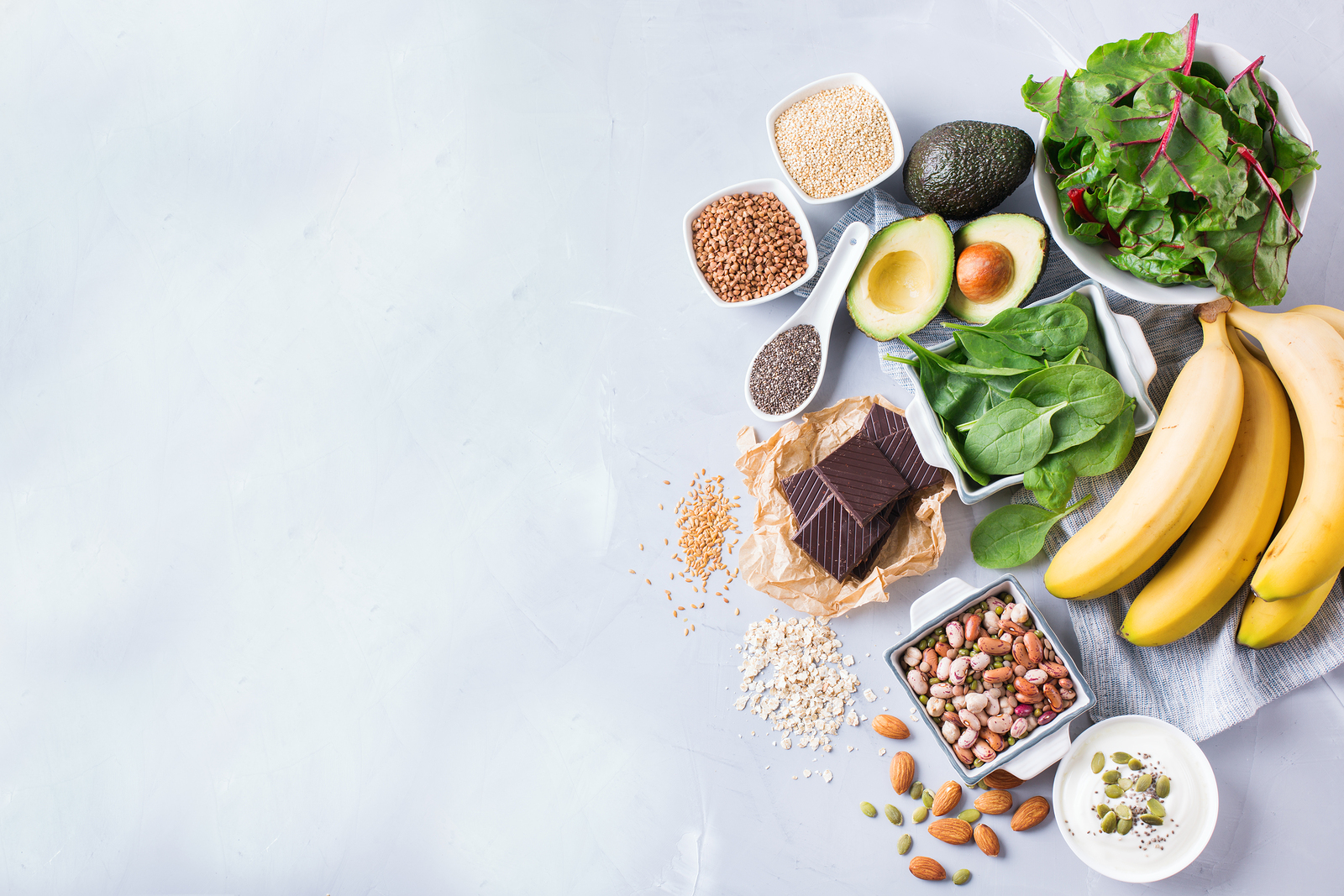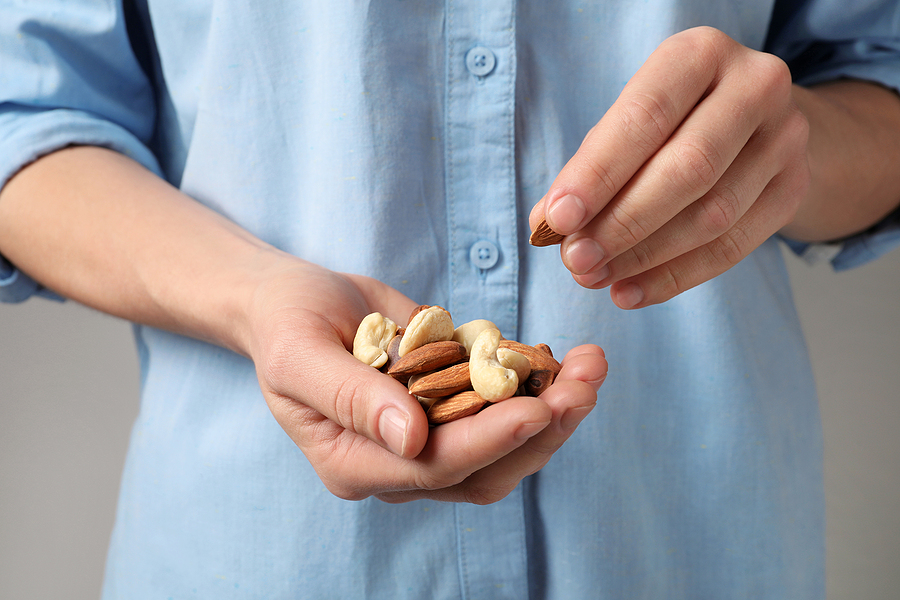Day after day I have women come into my practice frustrated because they have listened for years to experts who have told them that losing weight was a simple matter of eating less and exercising more. But like anything that’s been simplified too much, for many women that just doesn’t work. Women tell me they are eating less and exercising more than ever, but the numbers on the scale still don’t drop. That’s when I tell them that simply counting calories isn’t the answer. In fact, some of the most obese people in our society are those who eat the least. They ask, “How can that be?”
It’s crucial to have a solid understanding of nutrition. Good nutrition goes far beyond having enough to eat; quality of food is far more important than quantity. But in our culture, it’s easy to get large amounts of poor quality food very inexpensively – hence the “super size me” attitudes of many consumers. The overabundance of cheap, processed foods means that many Americans are overfed but undernourished. The food they are putting into their bodies just doesn’t provide the essential nutrients they need to flourish and their weight loss suffers from it.
Did you know that nutrient deficiencies can impact your weight? All nutrients have an important job in your body – and when they can’t perform their functions properly, many things happen to your system that make weight loss more difficult. Let’s take a look at 5 ways nutrient deficiency causes weight loss resistance.
Why Do So Many Have Nutrient Deficiencies?
Many Americans have one – or multiple – nutrient deficiencies that might be contributing to their weight loss resistance. Approximately 1/3 of Americans don’t get enough magnesium, vitamin C, vitamin E or Vitamin A in their diets, and 80% are low in Vitamin D. Even more startling, 9 out of 10 Americans have a deficiency of Omega 3 essential fatty acids. Why are so many people in our culture falling short in the nutrition department?
A large part of the problem is our modern diet, which is vastly different than that of our ancestors. So much of the food found in supermarkets today is processed, and high in simple carbohydrates and sugar. This food is less expensive than organically grown fruits and vegetables, grass fed meats, and wild caught fish – but often has no real nutritional value. This kind of food may fill you up temporarily, but it certainly won’t keep your body in good health – and it will sabotage your weight loss goals!
Too many women have either bought into the myth that fat is the enemy, avoiding all fats entirely, or they are consuming the wrong kind of fats by using vegetable oils rather than the healthier options that provide your body with the Omega 3s it needs.
Finally, even the food that does give you the nutrients you need is less powerful than it used to be. Industrial farming practices have stripped the soil of many nutrients, which means fruits and vegetables provide far less nutrition than they did even a few decades ago. Even if you love vegetables, it’s tough to eat enough of them to get the nutrients your body needs.
5 Ways Nutrient Deficiency Causes Weight Loss Resistance
You might understand that when you don’t have the nutrients your body needs, you won’t feel great. But do you know just how these deficiencies can impact your weight? Let’s take a look at 5 ways nutrient deficiency causes weight loss resistance:
1. Disruption of Quality Sleep
Lack of good sleep can affect weight in many ways. Research has shown an impact on hormones that signal both hunger and fullness, as well as the ability to resist specific cravings. Most important, however, is the research indicating that sleep deprivation affects your metabolism. A University of Chicago study showed that the body’s ability to process insulin dropped by more than 30% within four days of insufficient sleep. And when your body can’t respond appropriately to insulin, fats in your bloodstream will be stored rather than processed.
2. Inefficient Metabolism
Metabolism is often described as fast or slow, but this term actually describes how your body processes and uses the food you eat. If your metabolism is functioning properly, weight loss will be easier. It’s when you have a dysfunctional metabolism that your body may hang on to more calories than it burns – and that can impact your ability to lose weight. If your basal metabolism – the calories you need just to stay alive – is reduced, it can impact both the amount of calories you expend when active and the calories spent simply processing your food. Therefore, it could be harder for you to lose weight than someone of a similar weight with a properly functioning metabolism.
3. Increased Fatigue and Exhaustion
The more you move, the more calories you expend. But if you are so tired that you have a hard time getting out of bed, you certainly won’t have the energy to exercise. And if you’re feeling exhausted, you are far more likely to opt for takeout instead of preparing yourself a healthy meal.
4. Problems with Gut Health
When you aren’t getting the nutrients you need, your gut can suffer. If your gut is perpetually inflamed due to poor diet, or you have digestive issues such as leaky gut syndrome, absorption of the nutrients becomes a problem. This means that toxins permeate the protective lining in your gut and circulate throughout your body, causing systemic inflammation. This in turn could mean your brain isn’t getting the right messages – including the messages that you are full, or that fat should be burned for energy. Remember, seratonin is produced in the gut.
5. Imbalanced Hormones
Hormones carry messages to your brain. When hormone levels are not optimal, these messages get skewed – as in the above example of leptin. Your major hormones – adrenaline, cortisol and insulin – have a big impact on your ability to lose weight. If levels of these hormones are too high or too low, you could find yourself developing weight loss resistance.
How Specific Nutrient Deficiency Causes Weight Loss Resistance
I’ve talked about some of the ways nutrient deficiency causes weight loss resistance, now let’s talk about the specifics. Here are specific nutrients you need to maintain a healthy weight, along with some natural sources of each.
Magnesium
The mineral magnesium, found naturally in leafy green vegetables, whole grains, nuts and beans is involved in over 300 chemical reactions throughout your body. Magnesium helps promote restful sleep and good digestion, improve insulin and blood glucose levels, and regulate metabolism.
B Vitamins
The entire group of B vitamins can help increase energy and promote weight loss. These vitamins help metabolize protein, carbohydrates and fats as well as assisting with central nervous system activities. Vitamin B1 helps convert carbohydrates into glucose and boost energy. Food sources include wheat, green leafy vegetables and meats. Vitamins B2, B3 and B6 all impact production of thyroid hormone. A healthy thyroid is essential to maintaining a healthy weight. B2 is found in organ meats, milk, eggs, and almonds. B3 can be found in fish, meat, milk, and fruits like mangoes and tomatoes. Good sources of B6 include chicken, cabbage, sardines, brown rice and eggs. Finally, B12 can help you lose weight by boosting metabolism. Good sources of B12 include salmon, beef, chicken, and oysters.
Vitamin A
Vitamin A can help keep your gut healthy and helps your body fight infections. There are two forms available to your body – retinol and beta-carotene. Beta-carotene is converted to Vitamin A in your body. You can get retinol by consuming animal products such as whole milk, cheese, liver and oily fish. Beta-carotene is found in dark green vegetables such as spinach, as well as yellow, red, and orange fruits like carrots, tomatoes and sweet potatoes.
Vitamin C
Many people think of oranges and other citrus fruits when they think of vitamin C. However, plenty of vegetables and fruits are high in this vitamin and are essential in boosting our immune system. Research has shown that low levels of vitamin C has a connection to larger waists, higher Body Mass Index (BMI) and blood fat levels. These findings promote the relationship between vitamin C and L-carnitine. Vitamin C is important to the production of carnitine, which carries energy to all the cells in your body, ensuring a healthy metabolism. If you don’t have enough carnitine your energy levels will dip and prompt your body to store fat in your muscles.
Vitamin D
Research has indicated that vitamin D can actively assist your body in losing weight by restricting calories. If you are deficient, then, this biological route towards losing weight can be blocked. And to make matters worse, there is also evidence that being overweight could cause a vitamin D deficiency; so if you are trying to lose weight, you could be caught in a vicious cycle. Vitamin D deficiency can also play a large part in healthy sleep. The best natural source of vitamin D is sun exposure. Very few foods naturally contain vitamin D; the best sources are fatty fish such as salmon, tuna and mackerel. Many foods in the American diet are fortified with vitamin D.
Vitamin E
Vitamin E and vitamin K work together to produce red blood cells and improve muscle functioning. Lean muscle mass burns more calories than body fat, and can make your metabolism more efficient in burning calories. Kiwifruit, safflower oil, wheat germ, spinach, broccoli and sunflower seeds are all good sources of vitamin E.
Omega 3s
Omega 3 fatty acids have been studied intensely and have been shown to be essential for burning fat. These essential fatty acids lower insulin levels, increase metabolic rate, lower cortisol levels, improve the fat burning ability of your liver, and improve blood flow to your muscles during exercise. Because your body cannot produce Omega 3s, you have to get them from food or supplements. Some of the best sources are wild caught fish, including Atlantic mackerel, Alaskan salmon, and albacore tuna; walnuts, chia seeds, and flaxseeds.
Healing When Nutrient Deficiency Causes Weight Loss Resistance
Weight loss can feel like a losing battle sometimes, especially if you don’t understand how all aspects of your life impact your efforts. Now that you know the causes, here are some tips for healing when nutrient deficiency causes weight loss resistance. I encourage you to try these strategies to help ensure that nutritional deficits aren’t inhibiting your weight loss goals.
Eat Like Our Ancestors Did
When nutrient deficiency causes weight loss resistance, avoid processed foods as much as possible. Choose wild game when you can – or at the very least, organic, grass fed meats. Eat organic fruits and vegetables. Try to get your healthy fats from plant sources like extra-virgin olive oil, coconut oil, nuts and seeds. Eliminate sugar and refined carbohydrates from your regular diet. Eat protein at every meal to stabilize blood sugar.
Prioritize Good Quality Sleep
Sleep is when your body repairs itself and detoxifies, so if you aren’t allowing enough time for adequate sleep, you’re robbing your body of the ability to heal.
De-stress, Spend Time Outside, and Exercise
Making time to take a walk, bike ride, or simply sit in the sun for several minutes early in the day can boost your vitamin D levels. And if your time outdoors doubles as your exercise time, you may also boost energy and reduce stress without needing to squeeze in one more thing. Exercise also promotes healthy sleep, digestion, and balanced hormones and blood sugar. Find something that gets you moving that you love and do it every day. Chronic stress can seriously diminish nutrients as your body fights for survival. It doesn’t matter what your de-stressing activities look like. You have to find something you love and make it a point to do it every day.
Boost Your Gut Health
This goes hand in hand with eating well. Whole, unprocessed foods are rich in all the things you need – vitamins, minerals, antioxidants, essential fatty acids, fiber and anti-inflammatory compounds. If your gut health is particularly poor, you may need to add nutrients like zinc and glutamine that help mend the lining of your digestive tract. Digestive enzymes can help with nutrient absorption, and a probiotic can help replenish the good bacteria your gut needs for optimal functioning.
Dig Deep With a Functional Medical Practitioner
Resistance to losing weight is often one of many indicators that something more is going on with your health. Take the time – and any necessary tests – to determine what’s really going on in your body so you can know for sure when nutrient deficiency causes weight loss resistance.
Fight Weight Loss Resistance By Feeding Your Body Well
Now that you know how nutrient deficiency causes weight loss resistance, what’s next? Though eating well and getting the nutrients we need is more difficult for us today than it was for our great-grandparents, it’s certainly not impossible. All it takes is a little information and dedication to feeding your body – and soul – the right things every single day. And when you let go of bad habits and focus on getting all the nutrients you require, you just might find that your body lets go too – of the extra weight it’s been holding on to!







